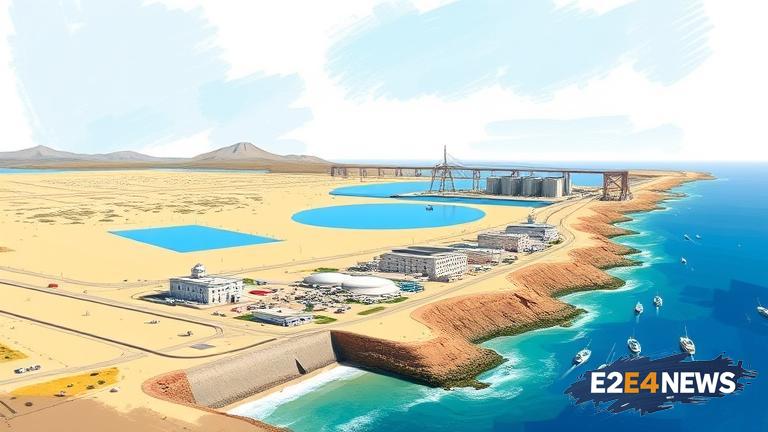The city of Torrevieja, located in the province of Alicante, Spain, is at the forefront of a heated debate regarding the proposed construction of a second desalination plant. The motion, set to be debated by local councillors, has sparked intense discussion among residents, environmental groups, and stakeholders. Proponents of the plant argue that it is necessary to meet the growing demand for water in the region, particularly during the summer months when tourism peaks. However, opponents claim that the plant would have devastating effects on the local ecosystem, including the destruction of marine habitats and the disruption of natural water cycles. The existing desalination plant in Torrevieja has been in operation since 2009 and has been the subject of controversy over its environmental impact. The proposed second plant would increase the city’s desalination capacity, but at what cost to the environment? Councillors are under pressure to make a decision that balances the needs of the local community with the need to protect the environment. The debate is expected to be intense, with various groups and individuals presenting their arguments for and against the proposal. The Spanish government has been urged to intervene in the matter, with some calling for a comprehensive review of the country’s water management policies. The construction of a second desalination plant would require significant investment, which some argue could be better spent on alternative solutions, such as water conservation and efficiency measures. Others point out that the plant would create jobs and stimulate local economic growth. As the debate rages on, residents of Torrevieja are left wondering what the future holds for their city’s water management. The motion opposing the construction of the second desalination plant has been met with widespread support from environmental groups, who argue that the plant would be a step backwards for the city’s sustainability efforts. The city’s councillors are faced with a difficult decision, one that will have far-reaching consequences for the environment, the local economy, and the community. The proposal has also sparked concerns over the impact on local wildlife, including the protection of endangered species. The desalination process involves the removal of salt and other minerals from seawater, which can harm marine life. The plant’s intake pipes could also suck in fish and other marine animals, causing them harm or even death. Furthermore, the discharge of the desalination plant’s wastewater could alter the chemical composition of the seawater, potentially harming the local ecosystem. In addition to the environmental concerns, there are also worries about the plant’s energy consumption and the potential impact on the local energy grid. The construction of a second desalination plant would require a significant amount of energy to operate, which could lead to increased greenhouse gas emissions and contribute to climate change. As the city’s councillors prepare to debate the motion, they must consider the long-term implications of their decision. The fate of Torrevieja’s water management hangs in the balance, and the outcome of the debate will have a lasting impact on the city’s environment, economy, and community. The city’s residents are eagerly awaiting the outcome of the debate, hoping that their voices will be heard and their concerns addressed. In conclusion, the proposed construction of a second desalination plant in Torrevieja has sparked a heated debate over the city’s water management and environmental sustainability. As the city’s councillors debate the motion, they must weigh the pros and cons of the proposal and consider the potential consequences of their decision. The future of Torrevieja’s water management hangs in the balance, and the outcome of the debate will have a lasting impact on the city and its residents.
